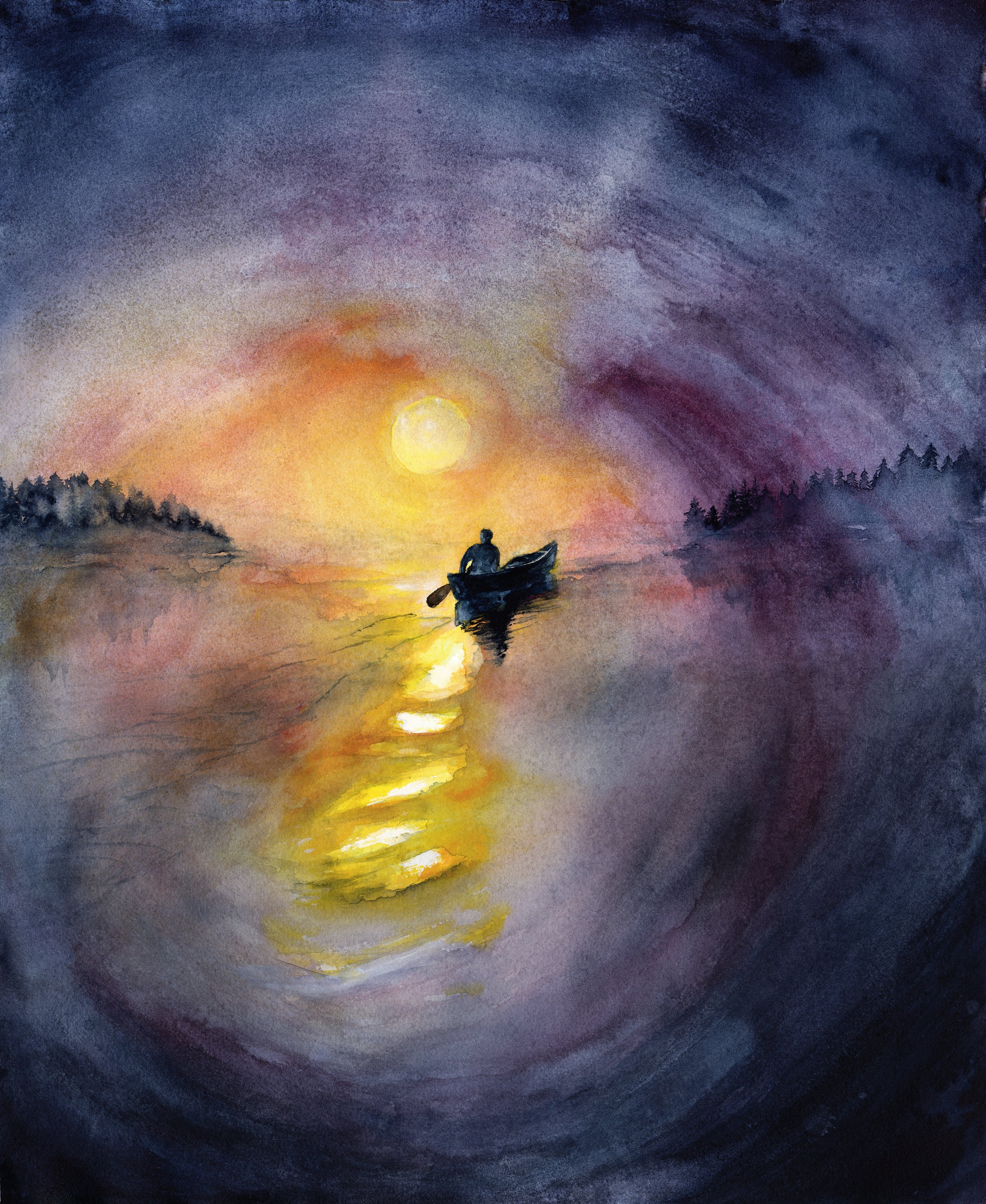
Art & words
That celebrate the beauty and mystery of creation
And the creative journey.
Christopher Robin came down from the Forest to the Bridge, feeling all sunny and careless, and just as if twice nineteen didn’t matter a bit, as it didn’t on such a happy afternoon, and he thought that if he stood on the bottom rail of the bridge, and leant over, and watched the river slipping slowly away beneath him, then he would suddenly know everything that there was to be known.
— From Winnie-the-Pooh, by A.A. Milne
. . .
Siddhartha came to the same realization – that the river offers access to all knowledge, at least all that is important.
You have to tune into the river first though. You can’t think of it as an impediment.
It slips slowly by underneath you. If you tune into it, believe it might be able to tell you something, it offers unity with all voices, all goals, all yearnings, sorrows, pleasures, good and evil, the laughter of the wise as well as the groan of the dying.
If you listen to the river long enough, if you stand on the bottom rung and tune in, the river offers unity with all things.
. . .
Siddhartha listened. He was now listening intently, completely absorbed, quite empty, taking in everything. He felt that he had now completely learned the art of listening. He had often heard all this before, all these numerous voices in the river, but today they sounded different. He could no longer distinguish the different voices — the merry voice from the weeping voice, the childish voice from the manly voice. They all belonged to each other: the lament of those who yearn, the laughter of the wise, the cry of indignation and the groan of the dying. They were all interwoven and interlocked, entwined in a thousand ways. And all the voices, all the goals, all the yearnings, all the sorrows, all the pleasures, all the good and evil, all of them together was the world. All of them together was the stream of events, the music of life. When Siddhartha listened attentively to this river, to this song of a thousand voices; when he did not listen to the sorrow or laughter, when he did not bind his soul to any one particular voice and absorb it in his Self, but heard them all, the whole, the unity; then the great song of a thousand voices consisted of one word: Om — perfection.
“Do you hear?” asked Vasudeva’s glance once again.
Vasudeva’s smile was radiant; it hovered brightly in all the wrinkles of his old face, as the Om hovered over all the voices of the river. His smile was radiant as he looked at his friend, and now the same smile appeared on Siddhartha’s face. His wound was healing, his pain was dispersing; his Self had merged into unity.
From that hour Siddhartha ceased to fight against his destiny. There shone in his face the serenity of knowledge, of one who is no longer confronted with conflict of desires, who had found salvation, who is in harmony with the stream of events, with the stream of life, full of sympathy and compassion, surrendering himself to the stream, belonging to the unity of all things.
— Hermann Hesse, from Siddhartha
. . .
Journaling notes: Have you taken time to sit by a river lately and listen to what it says?
. . .
Access other recent Art Journal posts, and books, poetry diary etc. from the prior twenty years of Heron Dance here.



